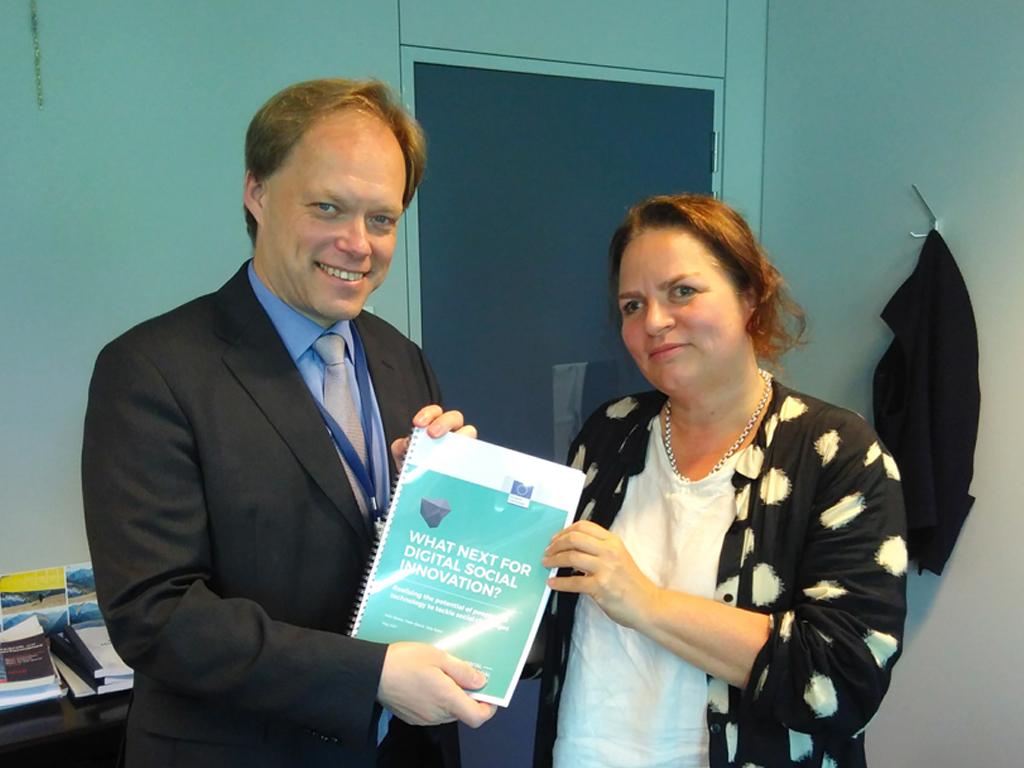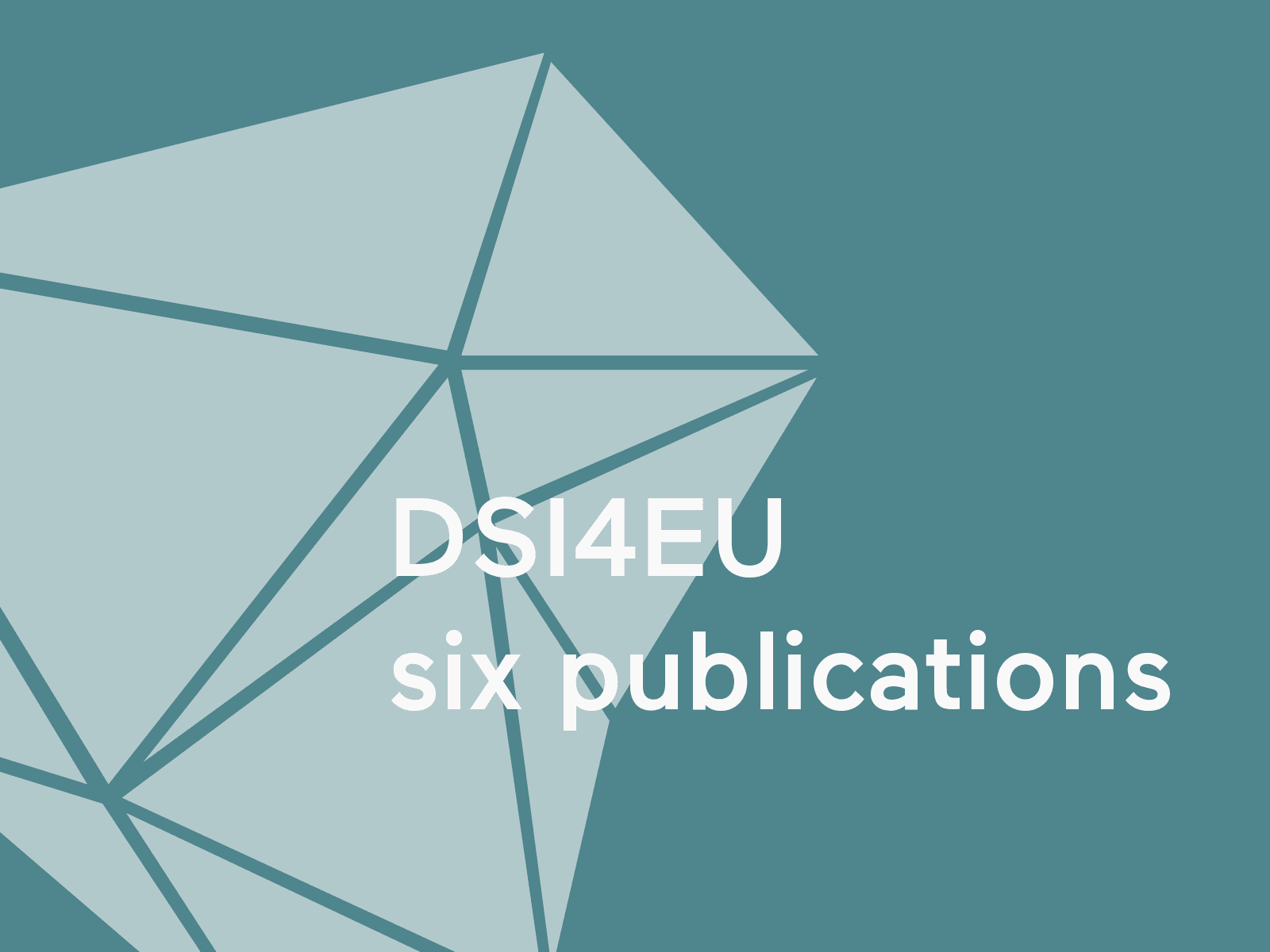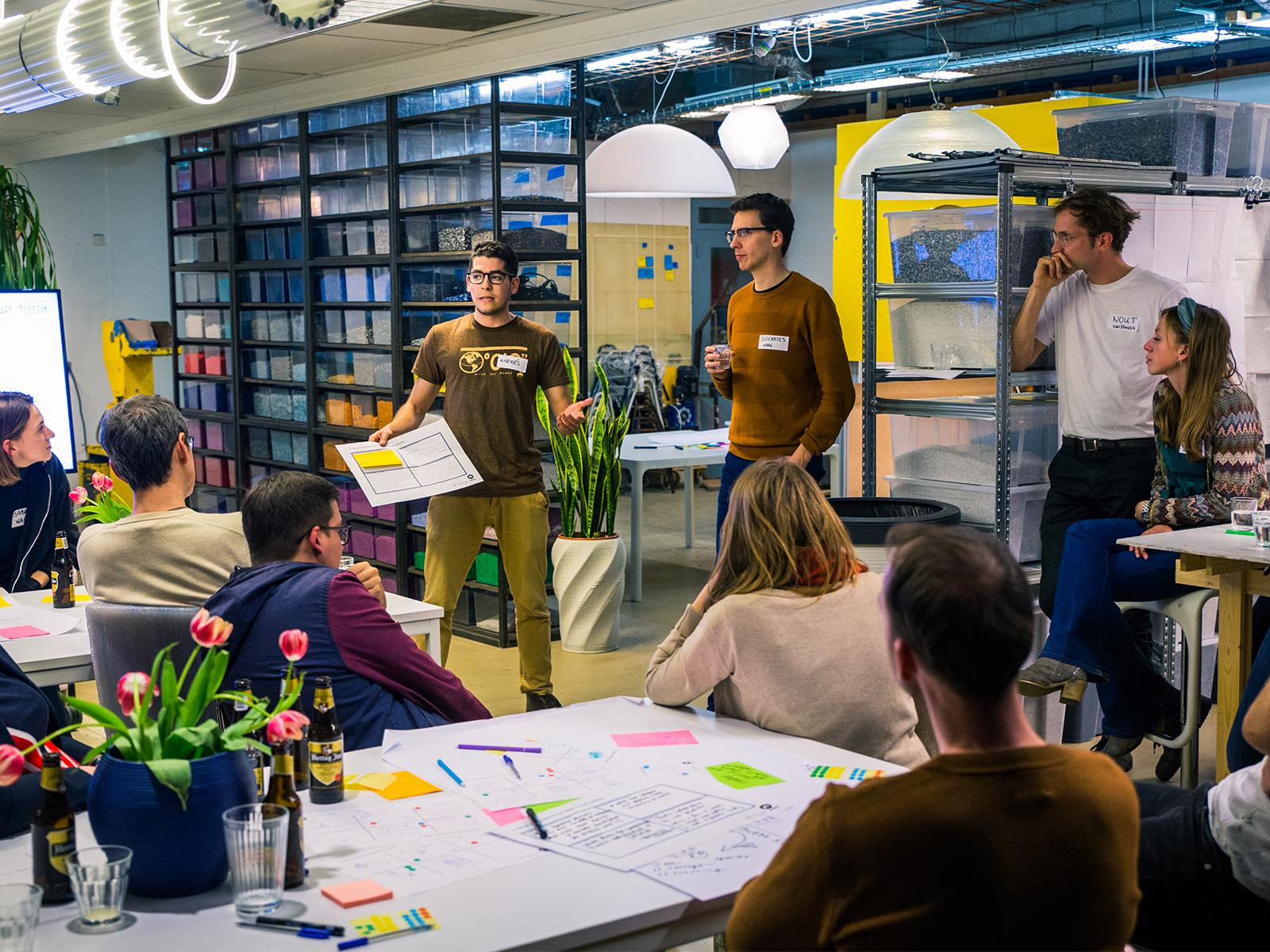It is hard to participate in classical EC Research programs for civil organisations, social enterprises, co-operations, communities and creative SMEs. And it is even harder to find EU support for proposals addressing topics like open technology, citizen science or social innovation because these challenge the current stakeholders and the current economic model underlying national and European innovation policies.
Last week director Marleen Stikker visited Kurt Vandenberghe, Secretary General for the Research and Innovation department for the European Commission, to discuss the systemic change needed at the core level of EC funding for Research and Innovation. We discussed scale and success of the DSI movement, presented the report ‘What Next for DSI” and discussed opportunities and challenges to get civic society more involved in European R&I.
One of the few programs which is open to digital social innovation is CAPPSI (an abbreviation of ‘Collective Awareness Platforms for Sustainability and Social Innovation’), a program of DG Connect. CAPPSI enables many relevant and bottom-up innovations like D-CENT, the Smart Citizen Kit, and Making Sense. The Decode Project that just started with the mission to give people online ownership of their personal data is also empowered by this CAPPSI program. The program received great reviews and is seen as a new citizens based approach for EC research activities. It came as a big surprise to learn that the program will disappear in 2018-2020. This mobilized many people from the community to protest and look into ways to influence the EC’s research agenda.
Nadia El-Imam, Founding Director at Edgeryders, started a petition and sent an open letter to the vice-president for the Digital Single Market, Mr. Andrus Ansip, and Director General, DG Connect, Mr. Roberto Viola, arguing that these new collaborations are "at a historical junction where the EU is perceived as distant and bureaucratic, DG Connect opened up to new voices, and brought fresh points of views into the European ICT research community." She points out to the findings of Proceedings National Academy of Science that "groups of diverse problem solvers can outperform groups of high-ability problem solvers".
In response to this open letter Mr. Andrus Ansip writes that he sees the value of interdisciplinary research in the field of the Next Generation Internet and has included that in the call. Besides that, he would like to see this approach more broadly applicable and especially valuable for research and innovation beyond ICT, e.g. the societal challenges, and the health and energy domain.
The social innovation approach is not limited to the ICT domain indeed. It challenges all societal challenges and the intersection of social and technological innovation. DSI4EU is an EU-supported extensive research in digital social innovation in Europe and is looking for ways to empower these initiatives to help them scale and grow. On the online DSI4EU platform initiatives from all over Europe find a place to showcase their projects, meet collaborations and find potential funding. The DSI4EU platform hosts currently 1,904 organizations and 1,109 project and shows the enormous diversity and field of activity.
The DSI report that recently is launched by Nesta, consists of recommendations that are also not limited to the ICT domain. They are generic for the whole of the H2020 program and creates a great opportunity to include the DSI approach into other parts of the European Commission’s agenda.
The recommendations are:
- Support DSI through funding mechanisms.
- Invest in intermediaries and the support infrastructure for DSI.
- Invest in and enable DSI approaches within existing civil society organisations.
- Enable peer learning and the spread of best practice.
- Conduct further research into the supporting conditions and models for growth and sustainability of DSI.
- Use public procurement to advance DSI.
It is clear the DSI movement in Europe is a firm believer in the innovation potential of civil society and SME’s. The DSI Manifesto seconds the recommendations from the DSI report. But how can we influence the policy making within the European Commission? What are the next steps now we have a clear understanding of mission and goals?
Waag addressed these issues by bringing together policy makers in a workshop. This policy workshop was followed by an event aimed at the political level: together with MEP Marietje Schaake, a workshop was organised in the European Parliament to garner political support. When discussing the strategic approach, Marietje Schaake suggested to use the developed level of support to gain access to the most senior level of EC policy officials.
Last Monday, we followed up to this advice and met with Kurt Vandenberghe, Secretary General for the Research and Innovation department for the European Commission, to discuss the systemic change needed at the core level of EC funding for Research and Innovation. In the meeting we explained the DSI movement, pointed out to the lobby to maintain DSI. For many reasons, Vandenberghe was hugely interesting to talk to and to discuss the future of European research programs. It is important to note the department of Research and Innovation is looking into new ways of steering their research agenda. Here they have the notable mission of including more civic society stakeholders into their research. They are highly interested to learn from the CAPSSI and DSI approach. In other words: how to get civic society in the driver’s seat towards a new research agenda?
Potential steps towards a society-driven European research agenda are:
- Jointly design the agenda and include civic players in discussions with the national contact points.
- Engage civic society in a re-design process of drafting the post H2020 research program, defining the challenges and mission, prototyping new approaches, workshops.
- Defining new economic principles and KPI’s to measure outputs. Not by focussing on closed systems that are patent driven but working with open and social impact indicators.
Our conclusion from this meeting is that the lobby for DSI needs to be intensified and structured. There are many opportunities to influence the post H2020 research landscape, but it is a process which needs a lot of engagement of active members of the DSI community. That is a serious threat, since DSI actors rarely have the financial power to pay lobbyists in Brussels. This efforts needs coordination, smart collaboration and a strong commitment of some of the larger players in the field. Besides playing a role in Brussel, we need to influence the national process.


